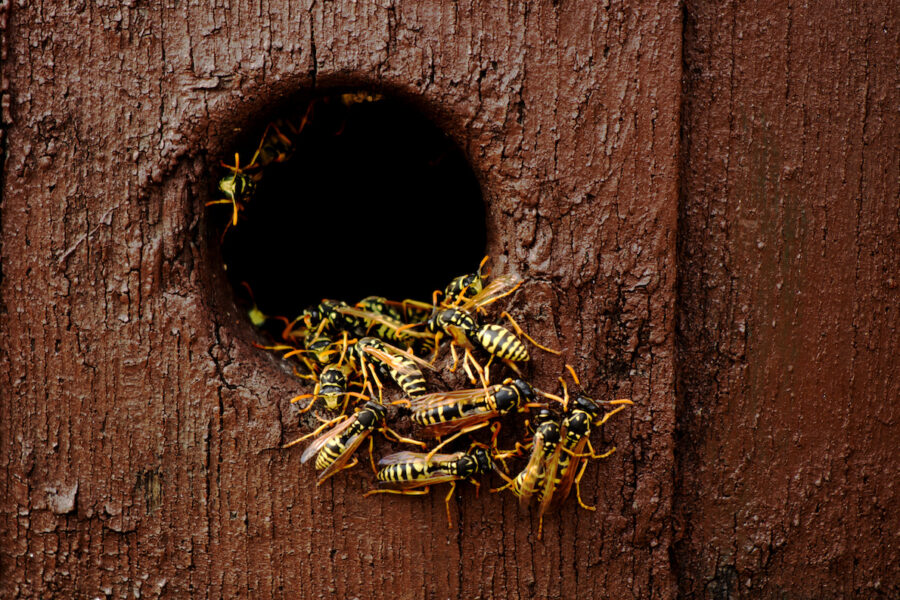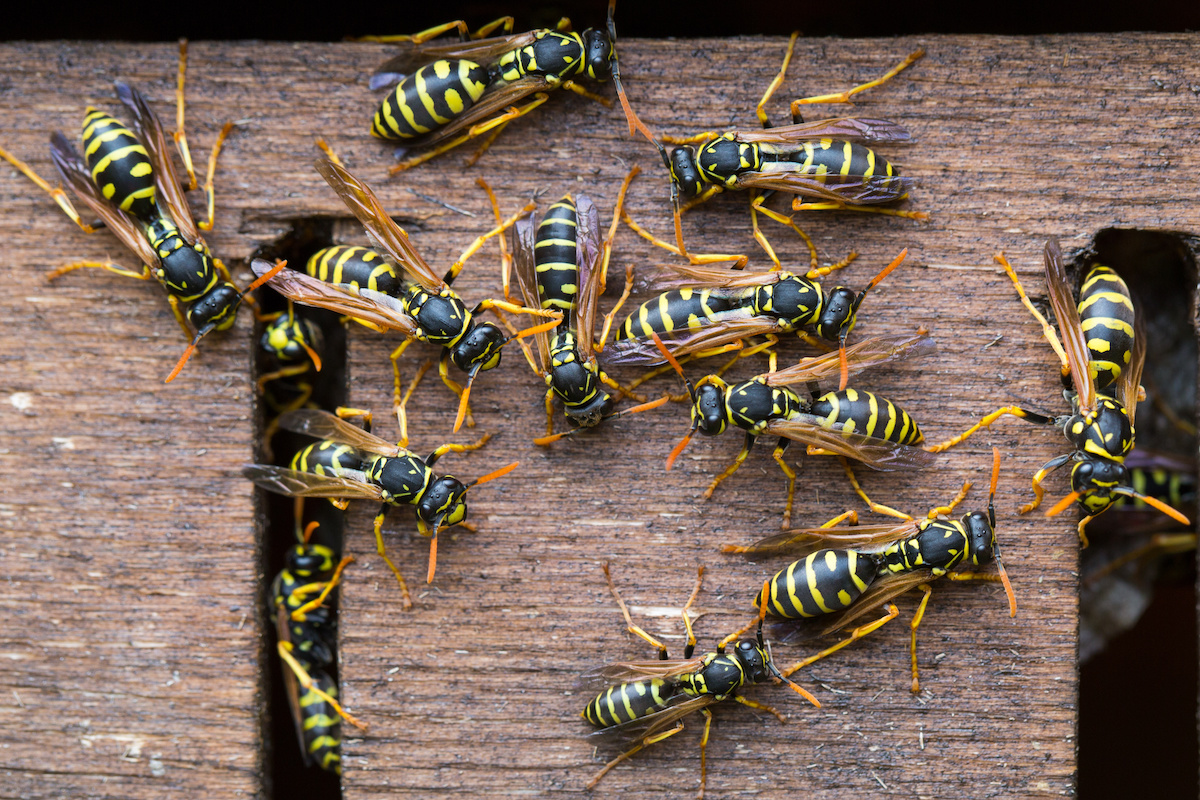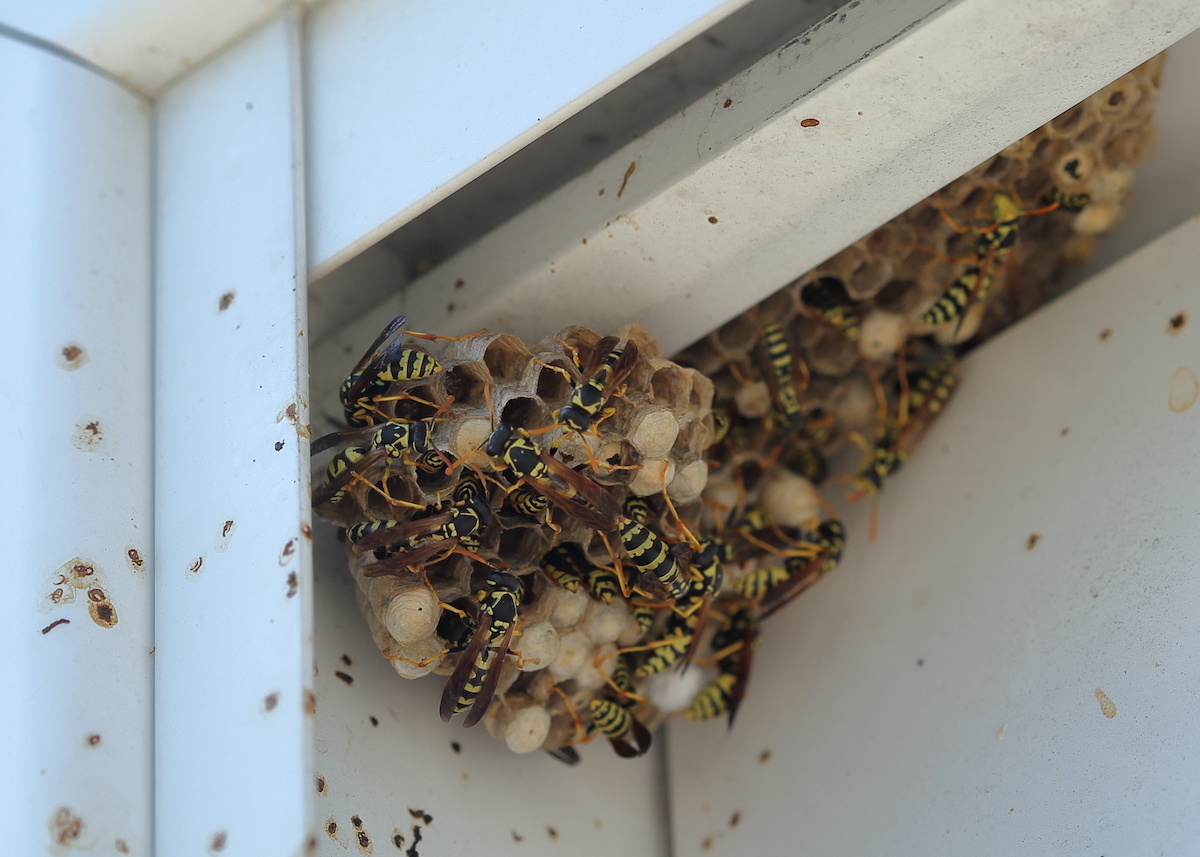
Nothing ruins a relaxing day in your backyard quite like the sudden buzz of a wasp. These aggressive insects can quickly turn a family cookout or garden session into a painful encounter. At James River Pest Solutions, we understand how frustrating and dangerous wasps can be around your home—especially during warmer months in Virginia. That’s why we’re sharing the top 5 expert tips to help you keep wasps away from your home.
Why You Need to Keep Wasps Away
Before diving into prevention, let’s talk about why it’s important to keep wasps away in the first place.
Unlike bees, wasps can be aggressive and territorial. They are more likely to sting multiple times if they feel threatened or if you accidentally disturb their nest. Their stings are not only painful but can be dangerous for people with allergies. In some cases, wasp infestations can become so severe that they limit your ability to enjoy outdoor areas of your home altogether.
Wasps are particularly active in the spring and summer, making now the perfect time to take action and stop them before they settle in.
Tip #1: Eliminate Food and Water Sources
Wasps are constantly on the hunt for food, especially sugary substances and protein. If your yard or home provides easy access to their favorite snacks, you’re inviting them in.
Here’s how to remove their temptations:
- Keep trash cans tightly sealed and away from outdoor living areas.
- Clean up spills and crumbs quickly, especially if you’re dining outdoors.
- Avoid leaving pet food outside, particularly during the day.
- Cover compost bins and avoid putting meat or sweet items in them.
- Fix leaky faucets or hoses that may provide water for thirsty wasps.
By removing their food and water sources, you’re making your property much less appealing to these stinging pests.

Tip #2: Seal Entry Points Around Your Home
Wasps can squeeze through the tiniest openings to find shelter. Even a small crack or gap around your home could be the perfect entry point for them to start building a nest.
Here’s what to do:
- Inspect window and door screens for tears or holes.
- Seal gaps around windows, doors, and vents using caulk or weather stripping.
- Check for holes in your siding or soffits, especially under eaves.
- Repair any loose or broken shingles on your roof.
- Install fine mesh over attic vents and chimney openings.
Proactive sealing not only keeps wasps out but also prevents other pests like ants, spiders, and rodents from getting in.
Tip #3: Remove Nesting Materials and Ideal Nesting Spots
Wasps are opportunistic nesters and will often use areas of your home or property that are protected from wind and rain. Eaves, soffits, overhangs, sheds, and porch ceilings are some of their favorite spots.
Here’s how to keep them from settling in:
- Regularly inspect common nesting spots like rooflines, gutters, and deck railings.
- Trim back trees and bushes that create shelter or provide easy access to your home.
- Remove old nests during winter when they’re inactive. (Wasps don’t reuse old nests, but removing them may discourage new nesting.)
- Use wasp decoy nests, which can deter other wasps from building nearby.
You can also apply natural deterrents like peppermint oil or soap-water mixtures to common nesting areas, which may discourage them from setting up shop.
Tip #4: Use Wasp-Repellent Landscaping to Help Keep Wasps Away
Believe it or not, your garden can either attract or repel wasps. Certain plants, scents, and landscaping choices can help reduce wasp activity naturally.
Here are some ways to use landscaping to your advantage:
- Plant wasp-repelling herbs like mint, citronella, lemongrass, and thyme.
- Avoid planting sweet-smelling flowers like peonies, lavender, and fruit trees near high-traffic areas.
- Keep your lawn mowed and clean, as wasps may burrow in the ground or hide in overgrowth.
- Use mulch or gravel instead of exposed soil, which can prevent ground-nesting species.
Not only will these plants help repel wasps, but many of them will also enhance your yard’s natural beauty.
Tip #5: Call in the Professionals to Keep Wasps Away
Even with your best efforts, wasps can sometimes find their way in. If you notice wasps flying in and out of a specific area, you might already have a nest. This is when it’s time to call in a professional.
At James River Pest Solutions, we provide safe, effective, and long-term wasp control services. We never recommend DIY removal for active nests—wasps can become highly aggressive and pose a serious health risk if disturbed.
Here’s how we can help:
- Wasp inspection and identification: We determine what type of wasp you’re dealing with and where the nest is located.
- Safe nest removal: Our team uses professional-grade equipment and protective gear to remove nests safely and completely.
- Ongoing prevention services: We offer seasonal pest control plans to help keep your home protected from wasps and other insects all year long.
- Eco-friendly treatments: We use products that are tough on pests but safe for pets, children, and the environment.
Protecting your home and family from wasps doesn’t have to be a solo mission—we’re here to make it easy and stress-free.
Bonus Tip: Know Your Wasps
Knowledge is power! Learning how to identify common wasps in Virginia can help you know what you’re dealing with and whether the situation requires immediate attention.
Common Wasps in Virginia:
- Paper Wasps – Brown with yellow markings, long legs. Their nests look like upside-down umbrellas and are often found under eaves or in open garages.
- Yellowjackets – Black and yellow and very aggressive. They often nest underground or in wall voids.
- Hornets (like the Bald-Faced Hornet) – Larger, black-and-white insects. They build large aerial nests in trees or on buildings.
While all wasps can sting, yellowjackets and hornets are the most aggressive and pose the biggest risk to humans. If you spot one of their nests, it’s best to avoid it and call us right away.

When to Be on High Alert
While wasps can be active from spring through fall, there are certain times when they’re more aggressive:
- Late summer and early fall: Food becomes scarcer, and wasps become more desperate and defensive.
- After rainstorms: Wasps may relocate or rebuild nests that were damaged.
- During construction or yard work: Vibrations can disturb hidden nests and trigger attacks.
If you notice a sudden increase in wasp activity or hear buzzing near your walls, porch, or attic, don’t wait—give us a call.
Need Help to Keep Wasps Away from Your Home
Preventing a wasp infestation is always easier (and safer) than dealing with one after the fact. With a few smart prevention strategies and a little help from the pros at James River Pest Solutions, you can keep wasps away from your home.
We offer affordable, year-round pest control plans that take the guesswork out of protecting your home. Our expert technicians are local, licensed, and ready to defend your property from wasps, ants, spiders, rodents, and more.
Call James River Pest Solutions today or schedule your inspection online—and take back your yard this season.